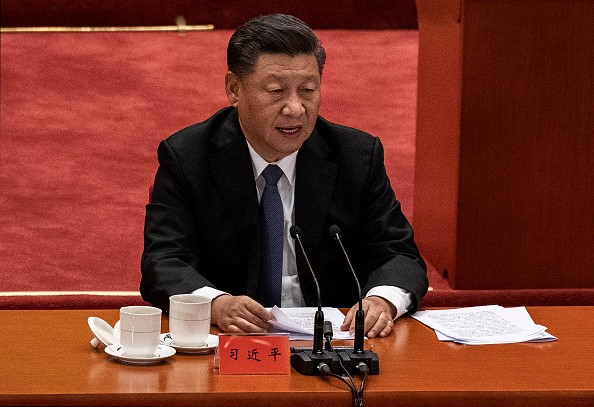
President Xi warned of a new Cold war and urged the world to come together to fight the coronavirus pandemic in a speech at the World Economic Forum.
"To build a small clique or start a new Cold War, to reject, threaten or intimidate others ... will only push the world into division," the Chinese president said in a 25-minute video speech.
New Cold War May End up Harming the Interest of Every Nation
President Xi called for improving the G-20 as the "main global economic governance forum." The community, consisting of 20 of the world's leading developing and wealthy nations, should "engage in closer coordination of macro-economic policy," added the President of China.
The words of the cold war seemed to threaten U.S. President Joe Biden's efforts to revitalize global alliances to counter China's growing power. Biden, busy addressing several urgent domestic crises, did not participate in Davos and tasked Washington with representing U.S. climate envoy John Kerry.
"In a swipe at movements launched by the previous U.S. administration under Donald Trump targeting China, President Xi said the confrontation "would always end up harming the interests of every nation and sacrificing the welfare of people.
In an approximately 25-minute speech, President Xi, making his first appearance at the forum since his robust defense of free trade and globalization in Davos's speech in 2017, promoted multilateralism as the way out of current challenges.
President Xi also called for improving global governance through multilateral institutions, eliminating barriers to international trade, investment, and technology transfers, and developed countries to be more represented on the world stage.
He emphasized the importance of reinforcing macroeconomic policies to tackle the global economic downturn caused by the pandemic.
China's Economic Growth
Davos has long been welcomed by China's leaders as a platform to highlight economic reforms while sidestepping tough political questions. As China tried to draw international investors in the aftermath of the 1989 Tiananmen massacre, former Premier Li Peng visited in 1992.
Xi's willingness to put political differences aside is not going to be an easy sell. Biden said China's Xinjiang policies were "unconscionable" on the campaign trail and even called President Xi a "thug." In 2019, the European Union even officially labeled China as a "systemic rival," although in the final days of 2020, it went on to sign an investment agreement with the Asian country.
Beijing's ambitious climate promises to reduce carbon emissions by 65% by 2030. To achieve carbon neutrality by 2060 was also reaffirmed by the Chinese leader, both relevant commitments as China emits a quarter of the world's greenhouse gases.
However, the Chinese government has been accused of mishandling the initial coronavirus outbreak and covering up details, despite managing the pandemic within its borders and kickstarting the economy.
Reinforced by confidence in his country's pandemic management, President Xi made aggressive climate commitments and vowed to uphold multilateralism as US-China relations reached their worst stage under the Trump administration in decades.
Nevertheless, the president spoke from a position of strength: China was the only major economy to record growth last year amid the pandemic, and analysts are predicting a rise of 8.3% this year, compared to 4.1% in the U.S.








